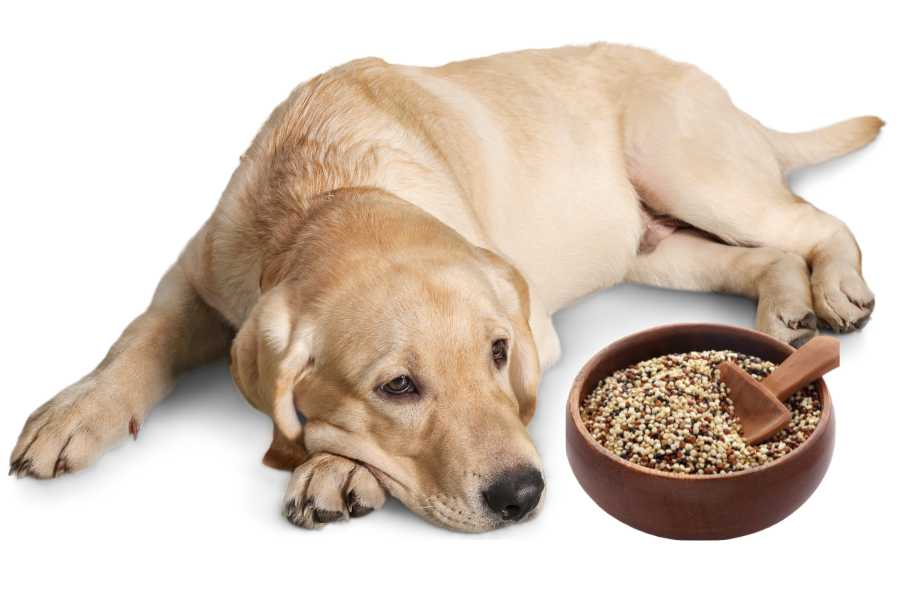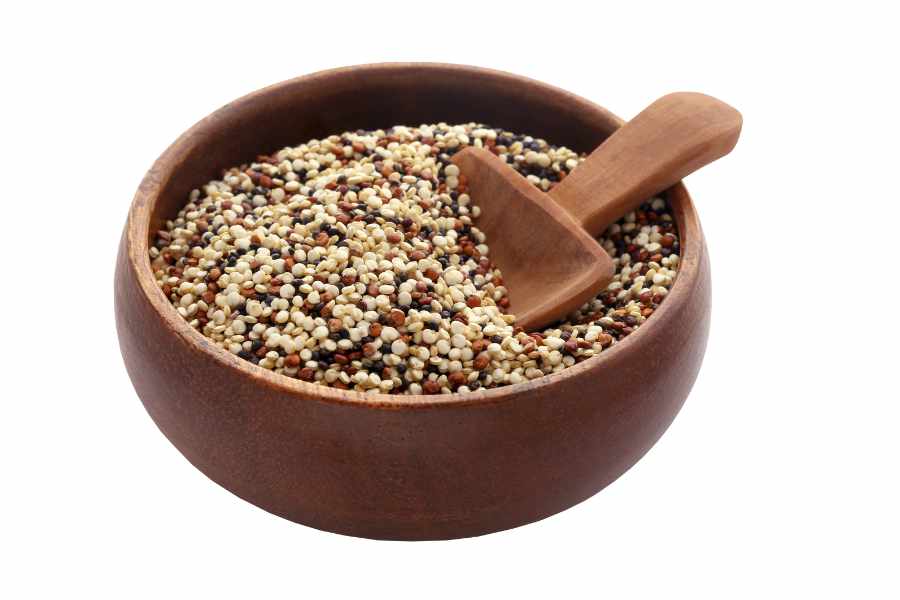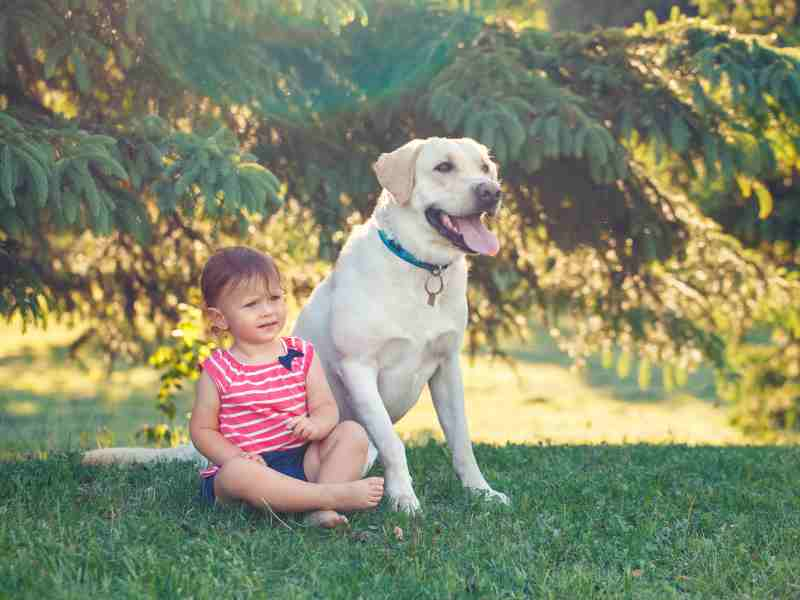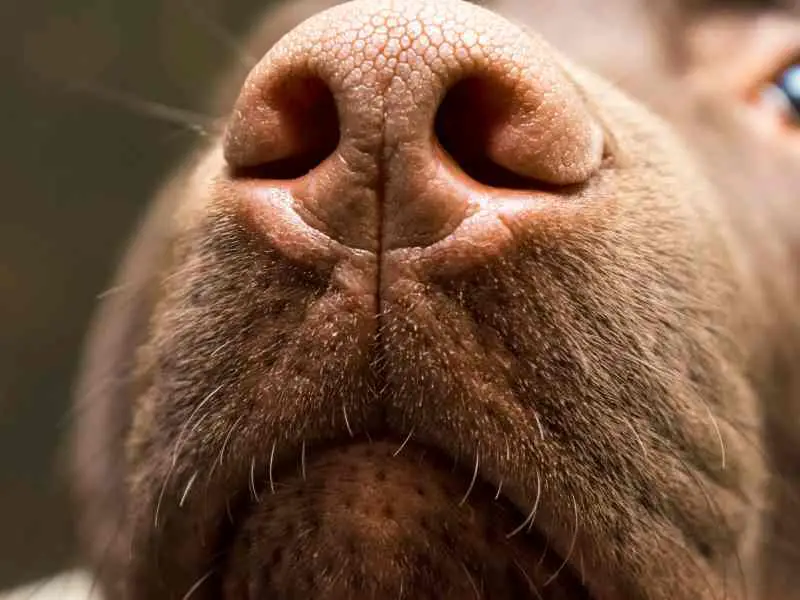When it comes to feeding our furry friends, every dog owner wants to take the best possible care of their pup.
But with so many different types of human food out there, it can be hard to know what is safe and healthy for your pet.

Can dogs eat quinoa? Yes. Labradors can eat quinoa. Quinoa is already an ingredient in some high-quality dry dog foods.
Let’s learn more about how this nutrient-packed superfood could benefit your pup!
What is Quinoa?

Quinoa is a grain-like crop that is becoming increasingly widespread among dieticians and health-conscious people.
It has become so popular due to its high nutritive content, being a great source of protein, fiber, and minerals including iron, magnesium, and zinc.
Quinoa also contains all nine essential amino acids which makes it an ideal choice for vegetarian or vegan diets as it provides the body with complete proteins.
Additionally, quinoa can be cooked in various ways such as boiling, steaming, or stir-frying making it a very protean food item!
Benefits of Feeding your Dog Quinoa
| Nutrient | Amount (per 3.5 oz / 100g of cooked quinoa) |
|---|---|
| Calories | 120 |
| Water | 72% |
| Protein | 4.4 grams |
| Carbs | 21.3 grams |
| Sugar | 0.9 grams |
| Fiber | 2.8 grams |
| Fat | 1.9 grams |
Source: https://www.healthline.com/nutrition/quinoa#nutrients
Quinoa is a great source of nutrition for dogs, as it is packed with protein and antioxidants.
It also contains dietary fiber which can help support digestion and decrease the risk of gastrointestinal issues such as constipation or diarrhea.
In addition, quinoa helps to regulate blood sugar levels in your pup and prevent spikes in their glucose levels.
Quinoa can be served cooked or raw, so it’s effortless to add some to your dog’s diet whether they like crunchy food or prefer softer consistencies.
Quinoa is also low-fat and gluten-free, making it an ideal food choice for overweight or sensitive pups!
Pros of Feeding Dogs Quinoa:
- High in protein and antioxidants
- Dietary fiber to support digestion
- Regulates blood sugar levels
- Low-fat and gluten-free
- Can be served cooked or raw
Risks Associated with Feeding Dogs Quinoa
Quinoa is a popular grain-like food that has become increasingly popular among humans, but can it be safely shared with our canine companions?
While quinoa is considered to be safe for dogs, in general, there are still some risks associated with feeding them this nutritionally dense superfood.
The husks of the quinoa grains contain saponin which can cause digestive upset including vomiting and diarrhea if consumed in large quantities.
read.. can labradors eat ginger?
Also, because of its calorie density and high-fat content, it should only be used as an occasional treat or supplement rather than a regular part of your dog’s diet.
Cons of Feeding Dogs Quinoa
- Saponin husks can cause digestive upset if consumed in large quantities
- High-calorie density and fat content should limit use as a treat or supplement
How to Prepare and Serve Quinoa for Dogs
Quinoa is becoming a popular choice for many pet owners due to its high nutritional content and palatability.
Preparing quinoa for dogs is as simple as cooking it in water or broth until it reaches the desired texture.
You can add other elements such as vegetables, meats, eggs, and dairy products to give your pup some extra boost.
Once cooked, allow the quinoa to cool before serving so that your pooch won’t burn its mouth on hot food.
As with any new food item you introduce into your dog’s diet, make sure they don’t have an adverse reaction by feeding them only small amounts at first.
Quinoa can be served warm or cold depending on what your pup likes!
Suggested Portion Sizes for Dogs Eating Quinoa
The suggested amount of food for a Labrador Retriever can vary based on their age, size, activity level, and overall health.
As a general guideline, adult Labradors should be fed between 2 and 3 cups of high-quality dry dog food per day, divided into two meals.
Puppies will require more food per pound of body weight than adult dogs. Large breeds like Labradors need more food per pound than smaller breeds.
Quinoa should be served in moderate portions that are appropriate for the individual pet’s needs. It´s never a replacement for your furry friend’s regular diet but it can be a healthy supplement.
As with all foods, it is best to confer with your veterinarian before pushing any changes in diet or portion sizes.
Other Human Foods that are Safe for Your Dog to Eat

Believe it or not, there are plenty of human foods that are safe for your dog to eat! Some examples include peanut butter, carrots, apples, oatmeal, and yogurt.
While these snacks may be a healthier option than commercially made treats (which often contain artificial ingredients and/or preservatives), they should be used in moderation.
Just like with people’s food. And always make sure to check the ingredient labels of any human food you give your pup.
Alternatives to Feeding Your Dog Quinoa
Quinoa is a popular human food that can also be fed to dogs. While it is high in protein and nutrients, quinoa isn’t always the best option for canine nutrition
Luckily there are plenty of alternatives. Brown rice, oatmeal, barley, and sweet potatoes are all good sources of carbohydrates and fiber.
For proteins, you can feed your pup lean meats like chicken or fish. Legumes such as lentils and chickpeas are also a great source of plant-based protein for your dog’s diet.
Adding vegetables like carrots, spinach or broccoli provides important vitamins while yogurt makes an excellent addition as well!





